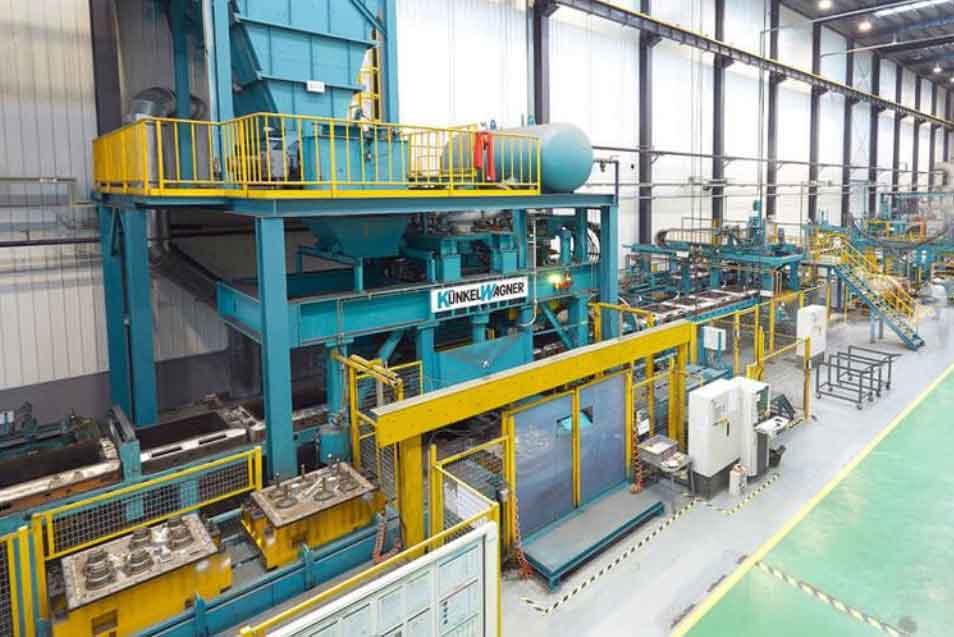Casting China’s industry plays a significant and evolving role in the global automotive and aerospace sectors, driven by the country’s substantial manufacturing capabilities and strategic initiatives. Here’s an in-depth look at how casting China’s operations impact these critical industries:

Automotive Industry
1. Supply Chain Integration
- China is a major player in the global automotive supply chain, providing a vast array of cast components such as engine parts, transmission cases, brake systems, and chassis components. The scale and cost-effectiveness of Chinese foundries make them attractive partners for international automotive manufacturers.
2. Cost Efficiency
- Due to lower labor and production costs, Casting China offer a cost-effective solution for automotive manufacturers looking to reduce overall vehicle production costs. This economic advantage is crucial in a highly competitive global market where cost reduction is a continuous goal.
3. Technological Advancements
- Chinese foundries have increasingly adopted advanced manufacturing technologies, including high-pressure die casting, investment casting, and the use of robotics and automation. These technologies enhance the precision, strength, and quality of cast components, meeting the high standards required by the automotive industry.
4. Quality and Standards
- With improvements in quality control and adherence to international standards, casting China manufacturers have overcome earlier perceptions of inferior quality. Many are now certified under ISO/TS 16949, a global standard that specifies quality system requirements for the automotive sector, enhancing their credibility and market access.
Aerospace Industry
1. Critical Component Supply
- Casting China manufacturers supply critical components for the aerospace industry, including structural parts, engine components, and landing gear elements. The precision casting techniques employed allow for high-performance parts that meet the stringent safety and durability requirements of the aerospace industry.
2. R&D and Innovation
- There is a growing focus on research and development within the casting China industry to meet the advanced needs of aerospace manufacturers. Innovations often focus on lightweight materials, enhanced durability, and improved heat resistance, which are critical for aerospace applications.
3. Expansion into High-Performance Alloys
- Chinese foundries are expanding their capabilities in casting China high-performance alloys such as titanium and nickel-based superalloys. These materials are essential for aerospace components due to their excellent strength-to-weight ratios and resistance to extreme environments.
4. Certification and Compliance
- To penetrate the global aerospace market, casting China manufacturers strive to comply with international aerospace standards and obtain certifications like AS9100. These certifications are crucial for participating in the global aerospace supply chain, as they ensure that products meet strict aerospace quality and safety standards.
5. Global Partnerships
- Chinese manufacturers often enter into joint ventures and partnerships with global aerospace firms to leverage technology transfer, improve manufacturing practices, and gain direct access to international markets. These collaborations help integrate casting China into global aerospace production lines more seamlessly.
Challenges and Opportunities
Challenges
- Intellectual Property Protection: Ensuring intellectual property rights is crucial, especially in the aerospace sector where proprietary designs and technologies are heavily regulated.
- Trade Tensions: Ongoing trade tensions can impact the stability and predictability of export markets, particularly for the automotive industry.
Opportunities
- Global Market Expansion: As quality and capabilities improve, Casting China manufacturers have significant opportunities to expand their presence in global markets, particularly in emerging regions.
- Sustainability Initiatives: There is increasing demand for environmentally friendly manufacturing processes. Investing in green technologies can provide a competitive edge and meet the global automotive and aerospace industries’ evolving sustainability standards.
Overall, Casting China’s industry is set to maintain and expand its influence in the global automotive and aerospace sectors through strategic growth, technological advancements, and international collaboration, adjusting to the industries’ dynamic requirements and contributing significantly to their supply chains.
